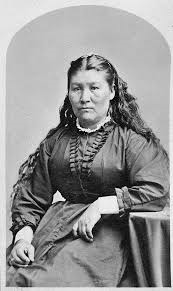Winning made easy. Enter to win a copy of the new book
Soldier, Sister, Scout, Spy:
Women Soldiers and Patriots of the Western Frontier.
A lone Native American woman cautiously led her chestnut mare through the bluffs around Klamath Lake, an inland sea twenty miles north of the line dividing California and Oregon. The rider was Mrs. Frank “Tobey” Riddle. She belonged to the Modoc tribe that settled in the area; they called her Winema. She was known among her family and friends as one who possessed great courage and could not be intimidated by danger. She pressed past the jagged rocks lining the transparent water, praying to the great god Ka-moo-kum-chux to give her abundant courage in the face of the certain danger that she was about to encounter.
Winema was a mediator between the Modoc people, other Indian tribes in the area, and the US Army. With her skills, she was able to negotiate treaties that kept the land of her ancestors in peace. Whenever that peace was threatened, her job was to set things straight. She was on her way now to do just that—riding into hostile Modoc territory to persuade the chief to surrender to the cavalry.
Chief Keintpoos, or Captain Jack (a name given to him by the settlers because of his liking for brass buttons and military medals on his coat), was Winema’s cousin. In 1864, the US government forced his people from their land onto a reservation in Oregon. Conditions on the reservation were intolerable for the Modoc people. They were forced to share the land with Klamath Indians of the region. The Modoc and the Klamath tribes did not get along. The latter particularly hated the Modoc people because they had long been defeated by them in battle. Now suddenly their old enemies were moved into their midst. The Modoc Indians struggled to live in this hostile environment for three years. Modoc leaders appealed to the US government to separate the tribes, but officials refused to correct the problem. In 1869, Captain Jack defied the laws of the white man and led his tribe off the reservation and back into the area where their forefathers had first lived.
The cavalry and frustrated members of the Indian Peace Council wanted to use force to bring Captain Jack and his followers back to the reservation. Winema persuaded them instead to give her a chance to talk with the chief. “No peace can be made as long as soldiers are near,” she told them. “Let me speak with my cousin and see what can be done without war.”
As Winema made her way around the jagged sides of the mountains, she thought of her son. Before she’d left on her journey, she’d held the infant in her arms and kissed his lips. Although she was traveling under a flag of truce, she considered the possibility of being seen as a traitor by her people and being struck down before she could plead her case. She shuddered a moment at the thought, then, with a set face, spurred her horse forward. I will see my little boy again, she promised herself.
When Winema reached the Modoc camp, Captain Jack’s men gathered around her. A dozen pistols were drawn upon her as she dismounted. She eyed the angry tribesmen as they slowly approached her. Then, walking backward until she stood upon a rock above the mob, she clasped her right hand upon her own pistol, and with the other on her heart she shouted aloud, “I am a Modoc myself. I am here to talk peace. Shoot me if you dare, but I will never betray you.” Her bravery in the face of such difficulty won the admiration of her people, and, instantly, a dozen pistols were drawn in her defense.
To learn more about Winema and other such patriots read
Soldier, Sister, Scout, Spy:
Women Patriots and Soldiers on the Western Frontier.


